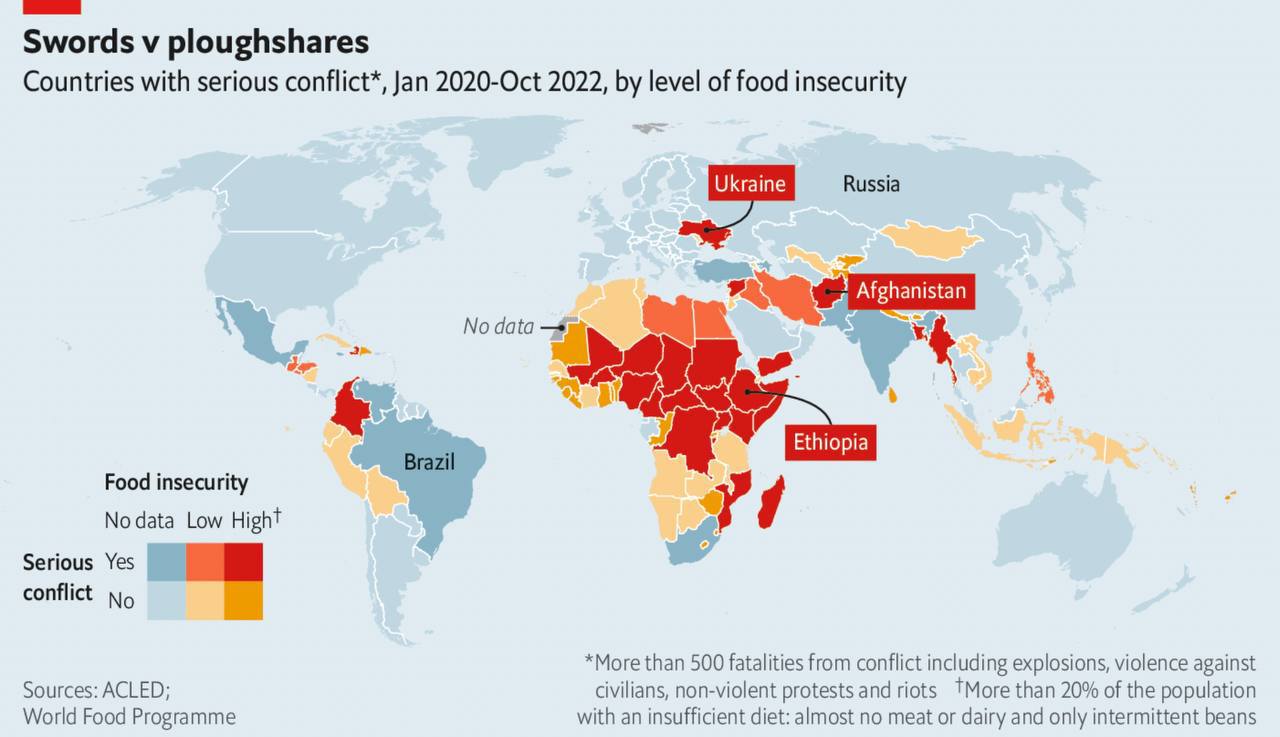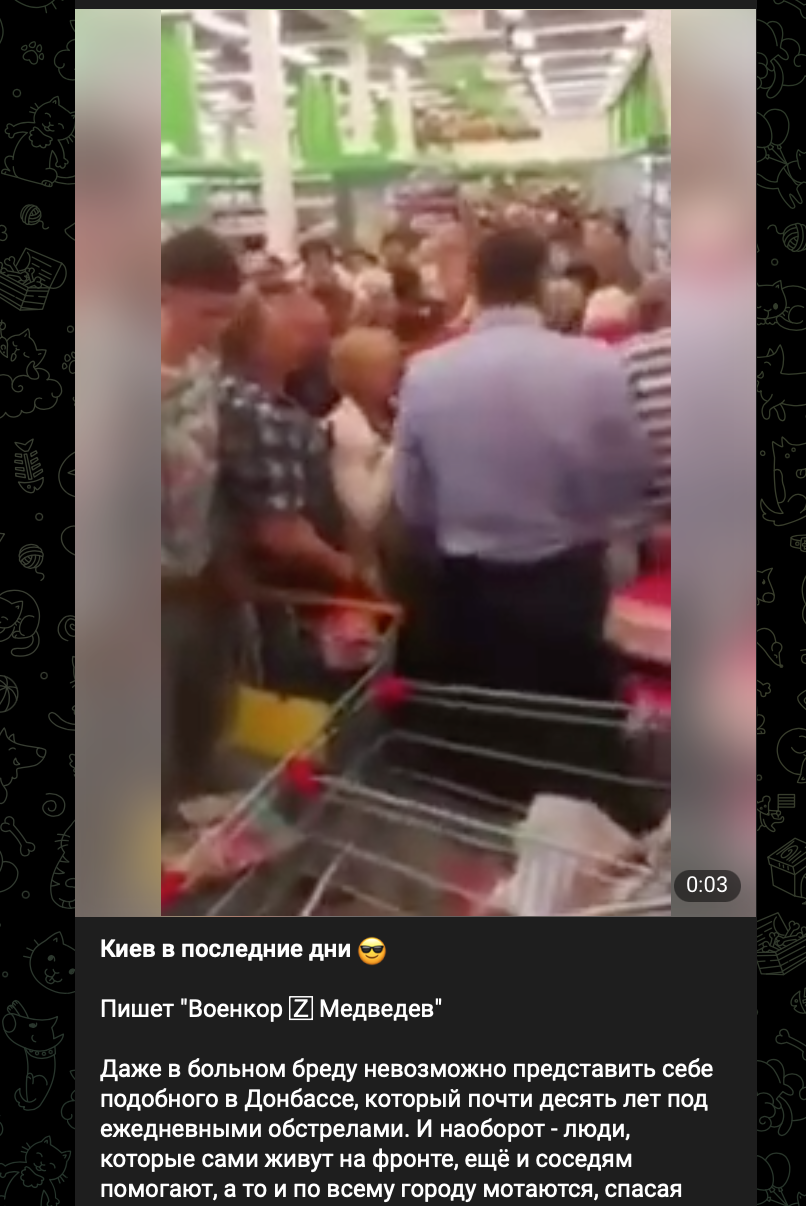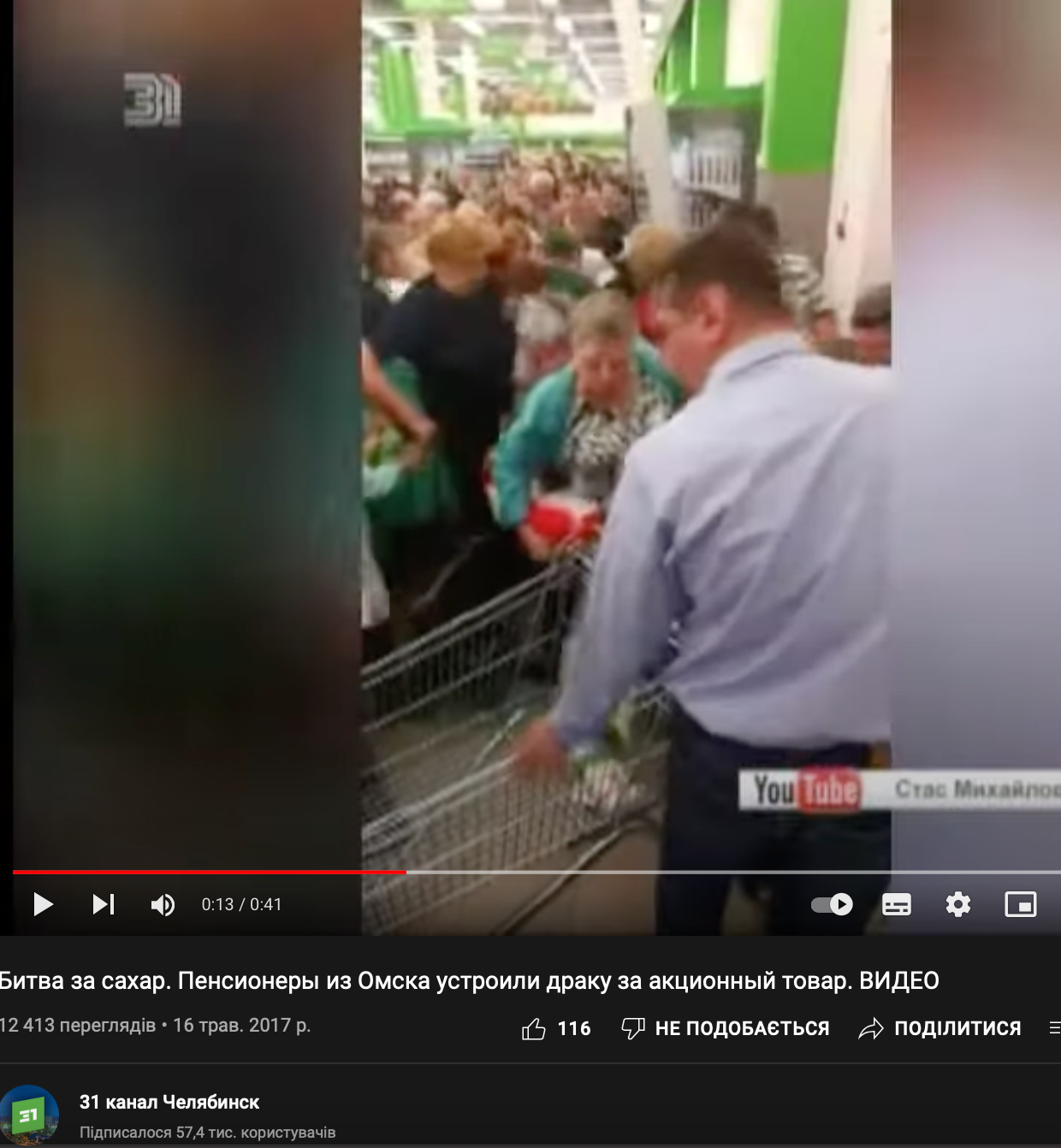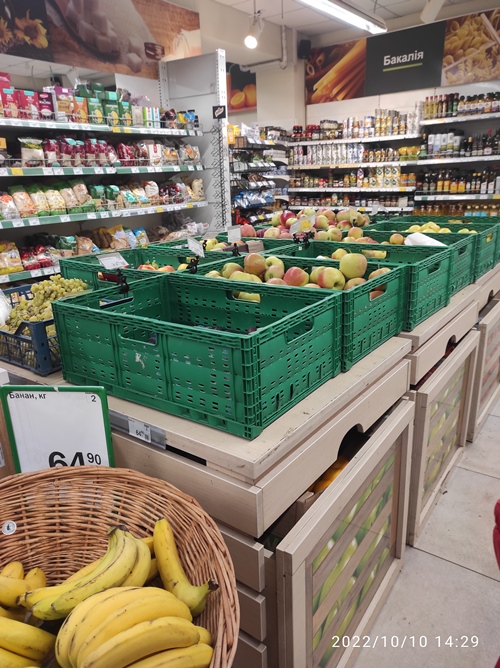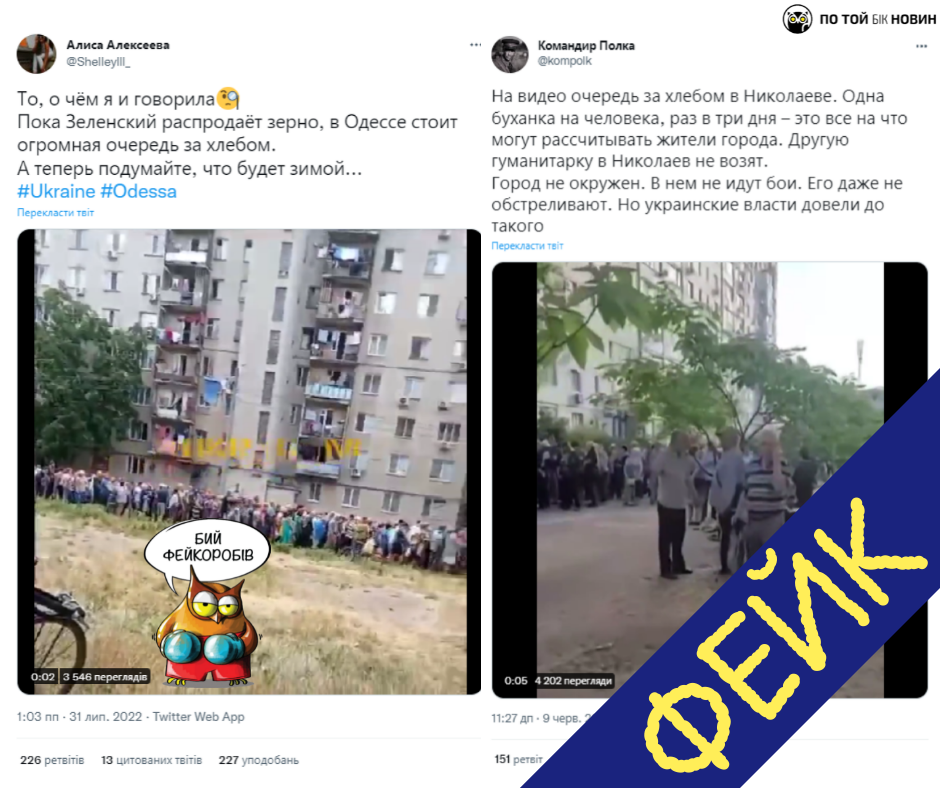Message Kyiv stores have “run out” of fresh products
The network is disseminating information that Kyiv stores are “almost out of fresh products” that need to be kept in refrigerators, in particular dairy products, semi-finished products and meat products. The post includes a photo of empty shelves in the store.
VoxCheck analysts analyzed the case and determined that the propagandists took the photo with empty shelves from an advertisement on OLX in Kazakhstan. And there is no shortage of goods and limited quantities of them, since none of the Ukrainian media have received such news.
Analysts add that according to a survey of retailers conducted by Interfax-Ukraine, the power outages have indeed presented supermarkets with the task of storing perishable goods. Some large networks such as Auchan, Novus and Varus have long had generators that ensure uninterrupted operation during outages. And solar panels were even installed on the roof of one of the Novus stores. But there is no shortage of products.
Propagandists constantly try to exaggerate the scale of problems in Ukraine in order to show the inability of the Ukrainian authorities to cope with the crisis situation. Thus, they want to shift responsibility from the aggressor to the victim of aggression and persuade her to make concessions.
Read on Censor.NET: The Ministry of Agrarian Policy allegedly sends recipes for dishes from pigeons and dogs to Ukrainians

